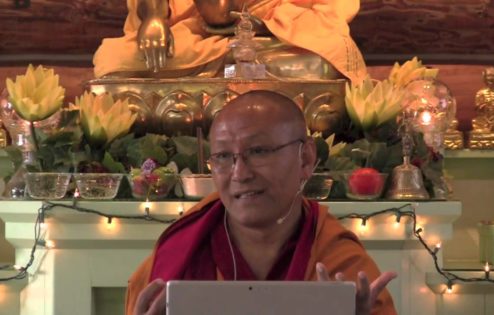emptiness
Teachings on the core of Buddhist philosophy: that persons and phenomena are ultimately empty of inherent existence because they are dependent arisings. This is the most powerful antidote that eliminates the ignorance and afflictions that give rise to suffering.
Latest Posts
View all posts in Venerable Thubten Chodron's teaching archive.
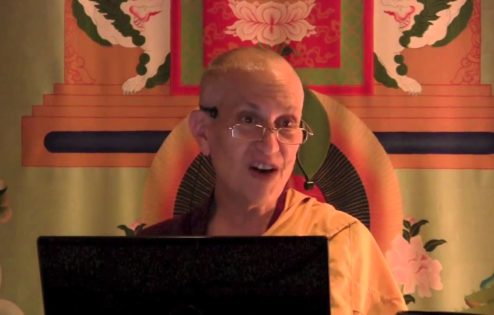
Chapter 1: Verses 86-92
Refuting inherent existence by examining mutual dependence. Looking at the mutual dependence of the four…
View Post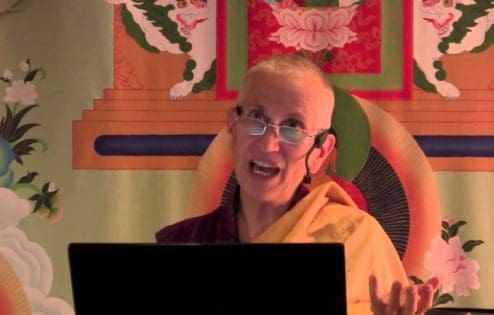
Chapter 1: Verses 82-86
Refuting the inherent existence of the person through the sevenfold analysis. Refuting the inherent existence…
View Post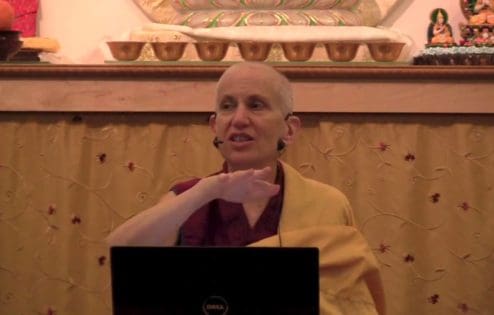
Chapter 1: Verses 81-82
Refuting an inherently existent self by analyzing the relationship between the person and the aggregates,…
View Post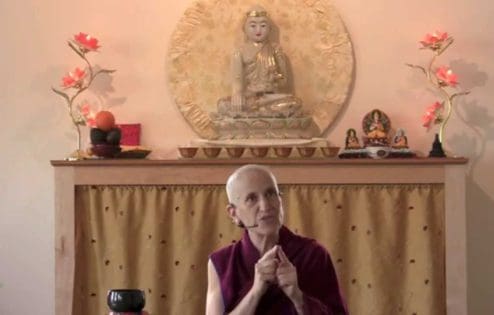
More qualities of the Buddha
Relating more qualities of the Buddha to a verse that is used to praise the…
View Post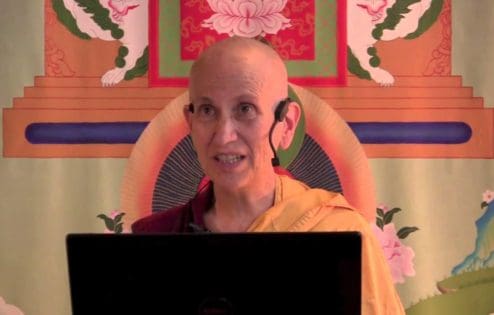
Chapter 1: Verse 80
How persons and things exist by being merely designated by conception but still exist conventionally.…
View Post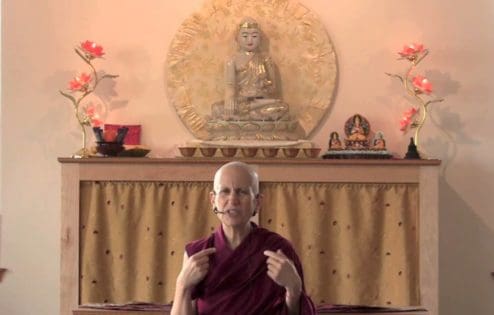
The four fearlessnesses of the Buddha
The four things that a Buddha has confidence in, and how reflecting on this can…
View Post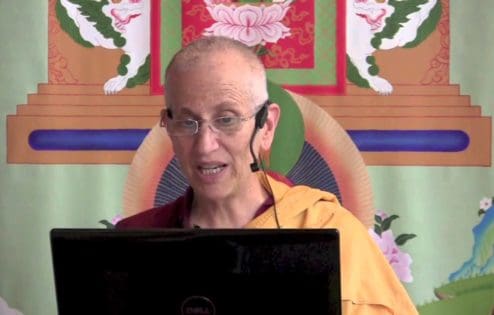
Chapter 1: Verses 76-80
How emptiness and dependent arising are mutually established, and how to posit that conventional and…
View Post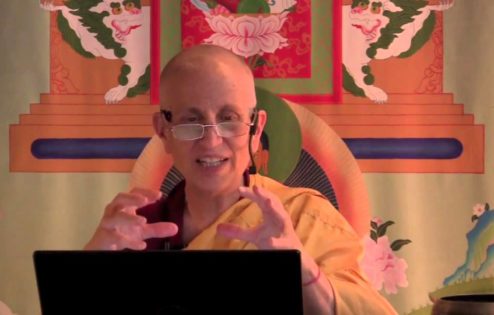
Chapter 1: Verses 69-75
The different ways to understand dependent arising to refute inherent existence—dependence on parts, causal dependence,…
View Post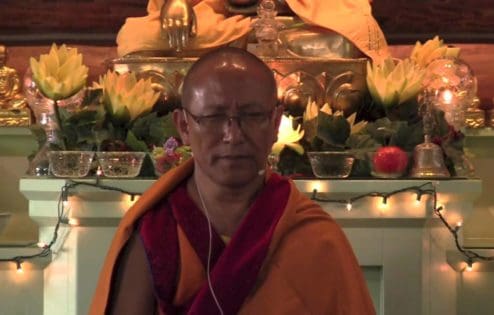
Meditation: Space-like emptiness
Geshe Dadul Namgyal leads a guided meditation on space-like emptiness.
View Post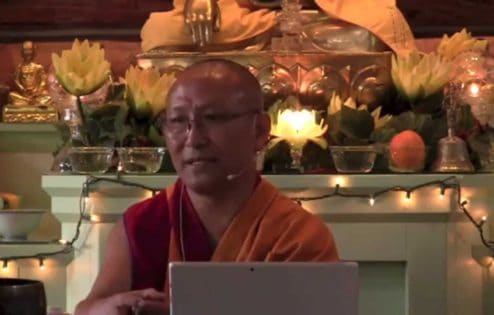
Emptiness: Questions and answers
Geshe Dadul Namgyal takes questions from the second day of teachings.
View Post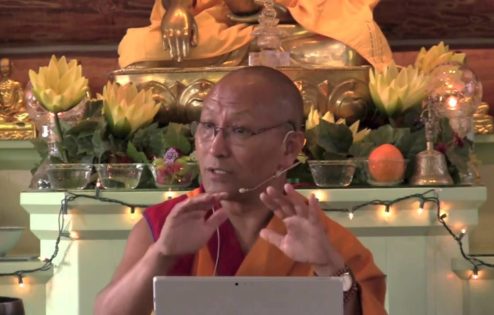
The object of negation
The distinctions that have to be made to arrive at the right understanding of emptiness.
View Post